Description
Duration
HGH effects become noticeable after two weeks of usage, but significant improvement is visible in two months, which is the minimum length of one cycle. The optimal duration is three-four months. The longer you take HGH, the less dosage you need.
Dosage
The effective dosage of HGH for bodybuilding is at least 4 IU, 2 IU if you are just looking for rejuvenation benefits. If you take it for the first time, it will be enough to consume 4-6 IU of HGH, to gain only clean mass.
When to inject HGH?
GH has the strongest fat-burning effect when the level of sugar and insulin is low. So, the best time to inject HGH is morning, o an empty stomach. If you are on cutting, it is the best time to run because for the level of free fatty acids in the blood will be very high for the next three hours, and it will be much easier to lose fat.
Even if you are on bulking, you should take the first injection in the morning.
The second one should be taken 6-8 hours later, when the levels of IGF-1 and HGH decrease. However, you can inject HGH before going to bed instead. Both injections should be equal.
If you’re a sports fan, you’ve probably heard of human growth hormone — more commonly known as HGH — and associate it with cheating and steroid use. However, did you know that HGH is a natural testosterone booster that’s produced on its own and provides many important benefits? It’s true.
Human growth hormone is naturally produced in the pituitary gland and plays a vital role in cell regeneration, growth and maintaining healthy human tissue, including that of the brain and various vital organs. Once secreted, HGH remains active in the bloodstream for a few minutes, allowing just enough time for the liver to convert it into growth factors, the most crucial being insulin-like growth factor (IGF-1), which has growth-promoting properties on every cell in the body.
The study of human growth hormone is a little more than 100 years old, and synthetic human growth hormone was first developed in the 1980s and approved by the FDA for specific uses in adults and children. Let’s find out why.
9 Robust Benefits of Human Growth Hormone
Human growth hormone can be injected in larger doses to promote weight loss and increase muscle size while a small doses can be used for general recovery, health and ignite the anti-aging process. Presently, there is a growing list of benefits of HGH treatment in children, adolescents and adults, such as:
1. Increased Muscle Strength
Human growth hormone has been known to improve physical capacity of individuals through stimulating collagen synthesis in the skeletal muscle and tendons, increasing muscle strength and improving exercise performance as a result.
In the International Journal of Endocrinology, a study with 14 healthy men at the ages of 50 to 70 were randomized into two groups. Seven subjects were administered HGH therapy with seven placebo subjects, and they were re-evaluated after six months. After six months, there was a significant increase in the leg press responsiveness muscles in the growth hormone group.
Overall, the study concluded an increased muscle strength in the lower body after human growth hormone was administered in healthy men. In HGH-deficient adults, participants who were administered long-term HGH therapy experienced normalization of muscle strength, increased exercise capacity, and improved thermoregulation and body composition.
2. Better Fracture Healing
Numerous of local growth factors and hormones are responsible for regulating mineral and bone metabolism, along with fracture healing. Administration of human growth hormone has been shown to speed up the regeneration of bone, making it a key part of bone healing. Applying growth factors like IGF-1 is known to stimulate the metabolism of bone.
In a study published in the journal BONE, growth hormone was systemically applied to recombinant species-specific rats by subcutaneous injections and was compared to the placebo group. As a result, the local growth factor application revealed a stronger effect on fracture healing than the systemic human growth hormone injection. These observations suggest that the local application of growth hormone speeds up fracture healing significantly without systemic adverse effects.
Human growth hormone plays a crucial role in the repair of wear and tear and expedites healing. Researchers have reported the beneficial effects of HGH in enhancing the healing of injuries and wounds significantly. A randomized, controlled, double-blinded study for six months of HGH therapy or placebo in 28 healthy older men with low baseline plasma IGF-1 was conducted at the University of California’s Department of Medicine. As a result, healthy older men who were administered growth hormone had enhanced collagen deposition during the wound-healing process, helping the healing process.
3. Enhanced Weight Loss
Obese individuals have limited response to growth hormone stimuli release, and after successful reduction of weight, growth hormone responsiveness can be partial or complete. Growth hormone accelerates lipolysis, the breakdown of lipids and involves hydrolysis of triglycerides into glycerol and free fatty acids, and impaired secretion of human growth hormone leads to loss of lipolytic effect.
Dietary restrictions and growth hormone treatment effects on anabolic and lipolytic actions as well as the changes in growth hormone secretions and insulin were investigated in a study published in Hormone Research. Twenty-four obese participants were on a hypocaloric diet and treated with recombinant human growth hormone or a placebo in a double-blinded, 12-week randomized study. As a result, growth hormone treatment caused a 1.6-fold increase in weight loss, with the greatest loss being visceral fat compared to the placebo.
In the placebo group, lean body mass was lost, whereas lean body mass was gained in the growth hormone group. This study suggests that in obese participants who eat a caloric-restriction diet, growth hormone accelerates the loss of body fat and improves growth hormone secretion. Thus, human growth hormone can serve a therapeutic role to help obese people lose weight.
4. Stronger Bones
The pituitary gland stimulates the release of growth hormone and is essential for regulating bone growth, especially during puberty. Growth hormone stimulates the production of IGF-1, which is produced in the liver and released in the blood. With age, human growth hormone decreases and may be the cause of older individuals not being able to form or replace bone rapidly. The IGF-1/growth hormone duo stimulates bone-forming and bone-resorbing cells, leading to increased bone mass.
5. Reduced Cardiovascular Disease Risk
Adults who are growth hormone-deficient have an increased risk for cardiovascular disease, leading to decreased life expectancy. In Sweden, 104 patients who are growth hormone-deficient were studied for cardiovascular disease risk. These patients had higher body mass and triglyceride concentrations compared to controls. These results suggest lipoprotein metabolism is altered by growth hormone deficiency, increasing the risk for cardiovascular disease.
6. Improvement in Erectile Dysfunction
It’s been suggested in recent studies that human growth hormone is responsible for male reproductive function and sexual maturation while deficiency is associated with loss of sexual erection and desire. Thirty-five healthy adult men and 45 participants with erectile dysfunction were exposed to tactile and visual stimuli in order to elicit penile tumescence in a German study. The increase in growth hormone was greater than 90 percent as determined during developing penile tumescence, followed by a transient decrease afterward.
This study suggests that penile erection may be induced by growth hormone through its stimulating activity on human corpus cavernosum smooth muscle, making it a potential natural remedy for impotence.
7. Decreased Obesity
Insulin resistance and visceral/abdominal obesity are common in adults with hormone growth deficiency. Abdominal obesity is prevalent in individuals who show low growth hormone and insulin-like growth hormone serum concentrations as well. Human growth hormone treatment has demonstrated positive results in adults who are growth hormone-deficient in treating obesity naturally.
Thirty men ages 48–66 with abdominal/visceral obesity were treated with recombinant human growth hormone in a nine-month, randomized, double-blind study published in the Journal of Clinical Endocrinology & Metabolism. Abdominal and visceral adipose tissue decreased along with diastolic blood pressure, and improved insulin sensitivity was one of the favorable benefits of human growth hormone found.
8. Better Mood and Cognitive Function
Quality of life and psychological well-being are restored when growth hormone therapy in growth hormone-deficient adults is administered. A Lithuanian study investigated the changes in cognitive function, mood and concentration from baseline after six months of treatment with human recombinant growth hormone. Eighteen adult patients with HGH deficiency participated in the study, and growth hormone was administered in 12 IU per week.
As a result, cognitive function and mood significantly increased after six months of therapy, according to mood scales. This study suggests that administering growth hormone can be a possible treatment option to improve cognitive function and mood in adults who are growth hormone-deficient.
9. Better Sleep
The majority of the growth hormone pulsatile secretion happens just after the onset of sleep and continues to rise when the first hours of sleep are reached. Individuals who are going through sleep deprivation, such as people who work the night shift or late studiers, can be affected negatively throughout the day. Lack of sleep alters pituitary and hypothalamus function, further altering growth hormone release time.
When sleep was deprived for 24 to 36 hours in a study conducted by the University of Chicago’s Department of Medicine, human growth hormone release was drastically decreased and noticeably decreased in growth hormone peak values at night. The 24-hour pulse rate of growth hormone became random and more frequent throughout these waking hours. This study suggests that sleep deprivation can reduce growth hormone release the morning after and can severely disturb and alter the sleep-wake cycle.
Human Growth Hormone Deficiency
Signs and symptoms of growth hormone deficiency vary with age, and children can have different symptoms than an adult. Children being significantly shorter than children their age and grow less than two inches per year are common symptoms of growth hormone deficiency. Children with normal levels grow about 2.5 inches a year from age 1 until they hit puberty, when they can grow up to four inches a year. However, a decline in human growth hormone does not have any impact on a child’s intelligence.
Other symptoms of growth hormone deficiency in children include:
- Facial features may appear younger than children who are the same age
- Delayed puberty, sometimes will not go through puberty
- Increased fat around the stomach and face
- Prominent forehead
- Slow hair growth
Adults may experience a combination of symptoms from human growth hormone deficiency, including:
- Depression
- Hair loss
- Sexual dysfunction
- Decreased muscle strength and mass
- Memory loss
- Lack of concentration
- Dry skin
- Increased triglycerides
- Fatigue
- Cardiovascular disease risk
- Increase LDL (“bad”) cholesterol
- Insulin resistance
- Reduced bone density
- Temperature sensitivities
- Increased weight, especially around the waist
Impact of Human Growth Hormone of Men and Women
More women are now using HGH for its anti-aging and weight-loss properties. Deficiency in human growth hormone in women is due to pituitary gland not producing enough HGH.
In women, human growth hormone levels start to decline in their early 20s, and signs of HGH deficiency include dry skin, thinning hair, greater belly fat and the development of wrinkles.
It’s been reported in studies that women secrete greater amounts of growth hormone than men, despite having similar reference ranges of serum IGF-1. Recently, there are significant clinical differences in the responses of HGH treatment in adults with HGH deficiency and a need to adjust the dose of recombinant human growth hormone. Adequate HGH levels help women improve an appropriate body-fat ratio and elasticity in skin. Risk of osteoporosis is reduced when HGH levels in women are balanced. Intramuscular HGH injections can help normalize sleep patterns, improved skin elasticity, help lose excess fat and enhance the immune system.
Men are likely to feel the first signs of aging after 35 old, such as loss of libido, weakness, baldness and memory loss. Human growth hormone has a positive impact on men, giving them the physical ability to perform in sports, which is why men often go through HGH treatment during intense training. Men who are treated with HGH experience reduction of fat, skin tightening, hair becomes healthier and thicker, and erectile dysfunction is corrected.

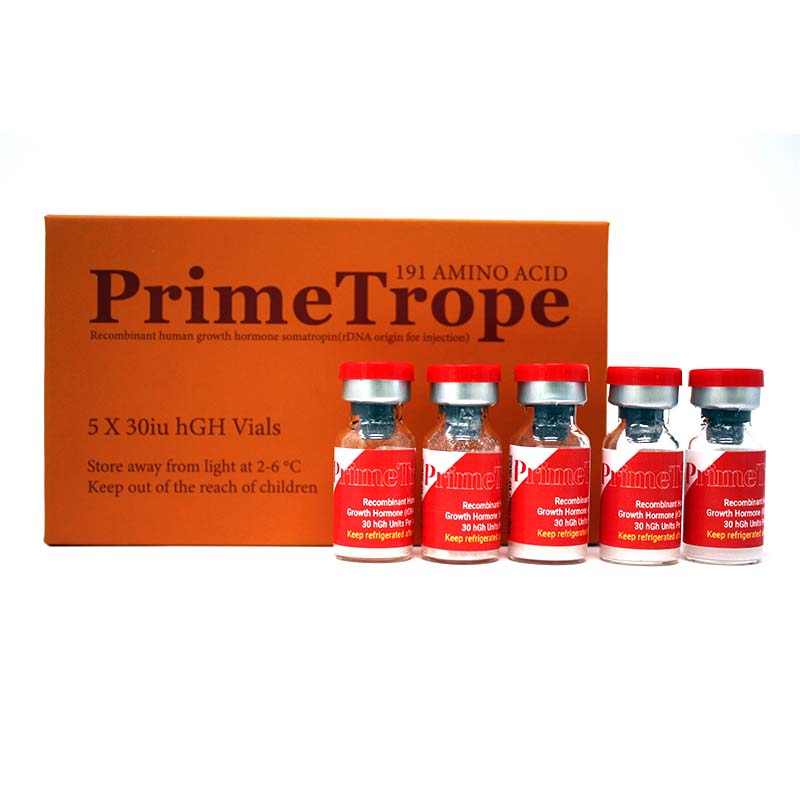
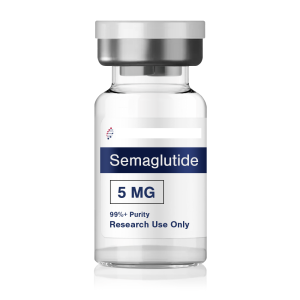
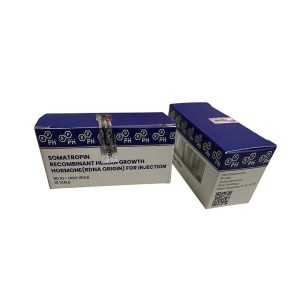
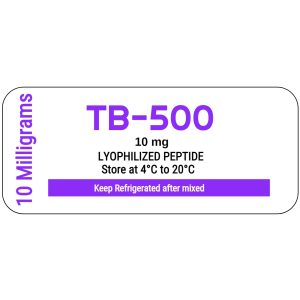
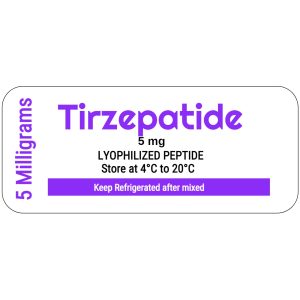
Reviews
There are no reviews yet.